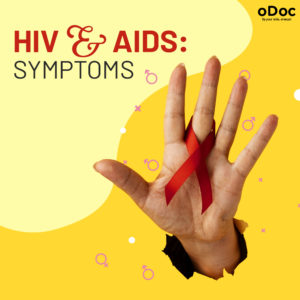
A Comprehensive Guide to Understanding HIV and AIDS
A Comprehensive Guide to Understanding HIV and AIDS In today’s world, health awareness plays a pivotal role in promoting overall well-being. One of humanity’s most

In Sri Lanka, sexual health is a topic rarely spoken about in the open. The taboo and social stigma surrounding this subject may inadvertently lead to sexually active Sri Lankans unaware of how to maintain a healthy sex life. Practicing safe sex is central to this as well as reducing the spread of sexually transmitted diseases (STDs), such as HPV.
Perhaps you’ve heard about HPV but have been hesitant to ask about it with your loved ones or your doctor. Perhaps you’re sexually active and would like to know how to be safe with your partner, and having an understanding of HPV is one such way to do that.
Well, let’s talk about it!
What is HPV?
The human papillomavirus (HPV) is one of the most sexually transmitted infections in the world today. There are more than 150 different strains of HPV. Depending on the type of strain, HPV can cause warts anywhere on the body. Warts appearing on your genitals is very common. Up to 80% of sexually active adults will get an HPV infection of the genital area at some point in their lives, although many who carry the virus don’t even know it.
You don’t need to panic if you find a wart on your body since the vast majority of warts are benign and non-threatening but speaking to a VOG doctor will ease your concerns. For a small number of women, certain strains of HPV can cause changes in the cervix that can become cancerous if not treated.
How do you get HPV?
HPV is spread by direct skin contact through vaginal, anal and oral sex with a partner who already has a genital HPV infection. Non-genital HPV infections can occur through skin to skin contact, such as shaking the hand of someone who has a wart on their finger.
What are the symptoms of HPV?
Symptoms of HPV, if they arise, typically appear in the form of a cauliflower-like growth called genital warts. They can also appear flat. Warts can be found around the vagina, anus, mouth and throat as well as the penis and groin. Symptoms usually take weeks or even months to develop after initial exposure.
Non-genital warts can be found on the rest of the body, especially hands, face, neck, chest, and soles of feet. Some warts can be inside your body, therefore, impossible for you to notice. And in some cases, there might not be any symptoms at all.
How can your doctor diagnose HPV?
Your doctor can diagnose warts by examining the area. Most of the time, warts don’t need to be biopsied unless the doctor is concerned that the warts could be cancerous. A biopsy entails removing a small piece of tissue and examining under a microscope.
If it’s possible that you have genital warts, your doctor will ask you about your sexual activity.
In the unlikely event that cancer is diagnosed, please speak to a doctor to further discuss the course of treatment.
How do you treat HPV?
Most warts can be treated at home with topical creams prescribed by the doctor. Other long-lasting methods of wart removal include:
In some cases, the wart may return. Therefore, you should take preventative measures to reduce the likelihood of getting an HPV infection.
How do you prevent an HPV infection?
Taking preventative measures is of critical importance when it comes to reducing your risk of infection or further spread of the virus.
Practicing safe sex can greatly reduce the likelihood of getting an infection. This includes maintaining a low number of partners as well as the consistent use of condoms.
The Centers of Disease Control and Prevention (CDC) recommends all children to be vaccinated before they become sexually active to prevent infection of high-risk strains of HPV.
For all the ladies out there, an important preventative measure that you can take is visiting your VOG doctor on an annual basis for your routine check up. Your doctor may perform a pelvic exam to make sure everything is normal in your vagina, vulva, uterus, cervix, rectum, ovaries and fallopian tubes. Your VOG doctor might suggest performing a pap smear as well. Pap smears are important as it involves examining cells from the cervix under a microscope to identify any abnormal cervical changes such as precancerous cells.
We hope you have a better understanding of HPVs now but if you have more questions or are concerned about other issues related to sexual health, you can get in touch with sexual health and VOG doctors on oDoc.
Resources & References:

A Comprehensive Guide to Understanding HIV and AIDS In today’s world, health awareness plays a pivotal role in promoting overall well-being. One of humanity’s most

How To Keep Going with Erectile Dysfunction: Causes and Treatments Erectile Dysfunction (ED) is a hard topic for many because it can be awkward to

Menopause Brain Fog is real: A Simple Guide with Symptoms and Treatment Women in their 40s and 50s who are just entering the end of
இப்போது மருத்துவ குறிப்புகளை உடனுக்குடன் உங்கள் இன்பாக்ஸ் இல் பெற்றுக்கொள்ளுங்கள்.